QuestionMy bearded dragon has not been with me very long. But I know her routine very well. She would eat a dozen crickets once a week and eat peaches and broccoli everyday. But now wants none of that. She also hibernates all day. This has been happening over a period of three weeks now. I also have not noticed her pooing like she did. Is she going thru a brumation period or is she needing to see a vet? She is very active when I take her out, but she is very small. She is a full grown dragon but looks like a juvenile. Is she too little to diagnose anything by a vet?
AnswerHi Nikki,
It is a bit early for brumation but certainly not out of the question. Most start showing signs around Sept to Nov. but we are not that far away from that! Brumation is likely triggered by shorter days, cooler temps and changes in barometric pressure all of which can start to occur in the later part of summer.
Brumation does tend to be marked by sleeping during the day, often in the cooler end of the tank and a sharp decrease in appetite. Their metabolism just slows right down so they do not tend to lose weight and their pooping schedule drops off dramatically. Her activity when you handle her is a good sign and supports the brumation theory.
The one thing I would suggest diet-wise is to change up the broccoli with some other green that is not a brassica/cruciferous vegetable which are part of the cabbage family. Other brassica greens would be collard, kale, mustard and turnip so try something like escarole/chicory or dandelion instead. Brassica vegetables can affect and slow down the thyroid gland if they are fed exclusively for a long period.
It is always better to be safe then sorry and a vet check-up, even if you feel that it is early brumation would ease your mind a great deal. Your vet can likely perform a stool exam in house but would refer any blood specimens (which can determine liver and kidney function and possible infections status) to a veterinary lab. They have specialized instrumentation that can work on very small amounts of blood (think of baby birds!) so no, she is not too small to have an effective exam done.
Her lack of size for her age could just be due to her previous feeding schedule or lack of proper basking spot which would restrict her growth. Genetics plays a role and females are generally smaller then males. A vet exam may also reveal an underlying medical reason why she seems a bit small.

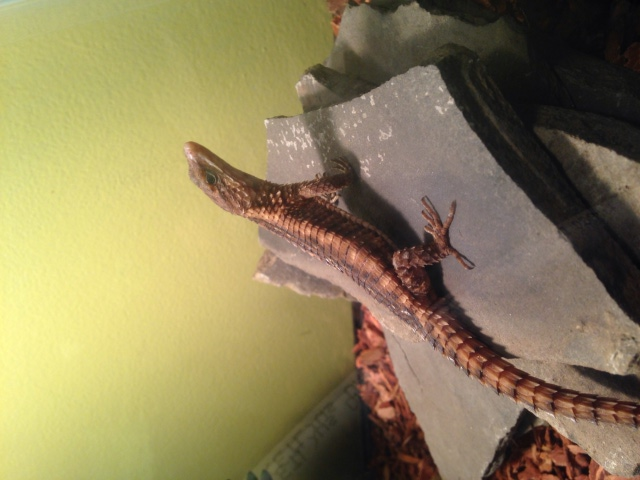 Armadillo lizard
Question
Lizard
Yes im having troubles with my
Armadillo lizard
Question
Lizard
Yes im having troubles with my
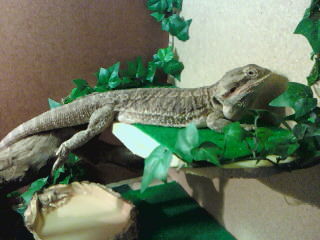 Female beardie
Question
Igor
Hi there,
Can it be detrimental for my fe
Female beardie
Question
Igor
Hi there,
Can it be detrimental for my fe
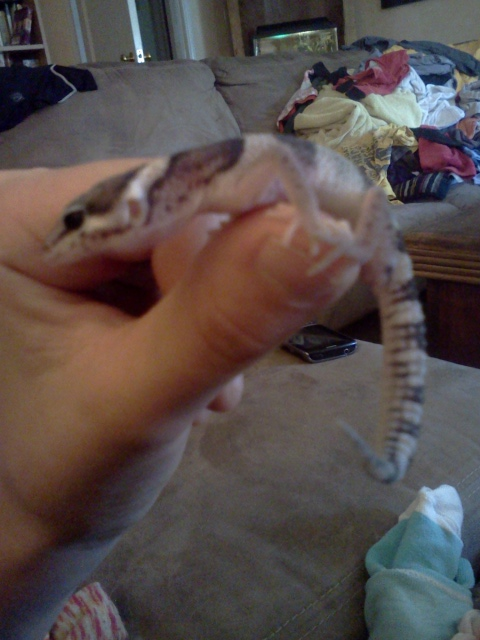 baby leopard gecko morph
Question
Rocky
I just got a super cute baby geck
baby leopard gecko morph
Question
Rocky
I just got a super cute baby geck
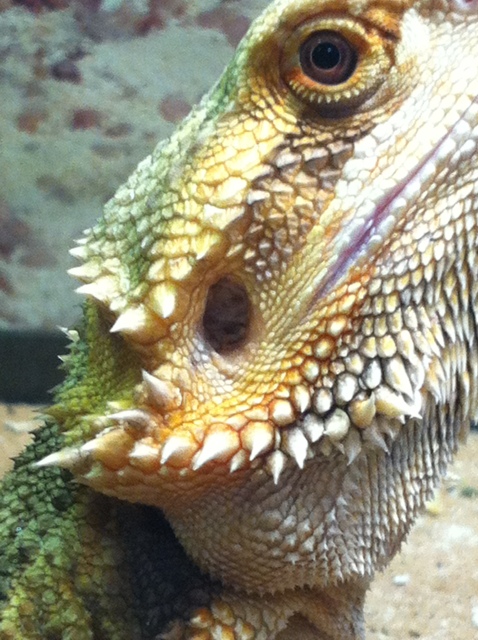 Bearded Dragons ear membrane does not look normal
QuestionQUESTION: Hello Tracie,
I have a Bearded Dragon
Bearded Dragons ear membrane does not look normal
QuestionQUESTION: Hello Tracie,
I have a Bearded Dragon
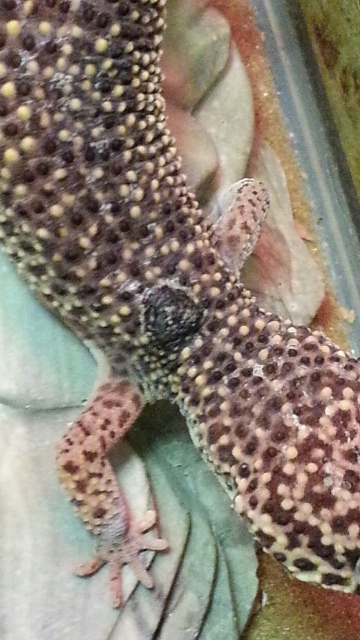 leopard gecko
QuestionChuck
Chuck
QUESTION: My sons leo
leopard gecko
QuestionChuck
Chuck
QUESTION: My sons leo